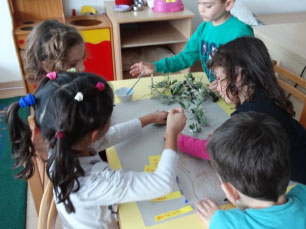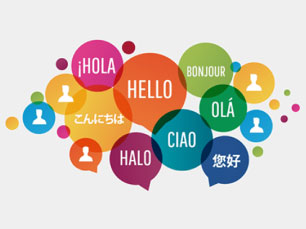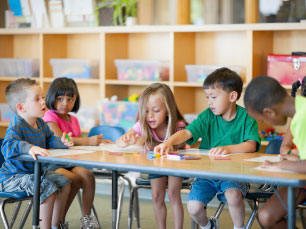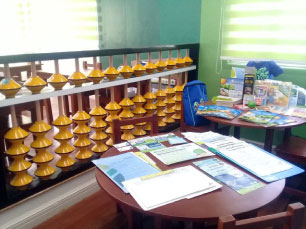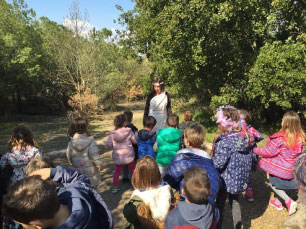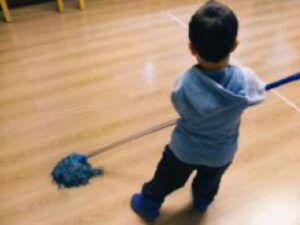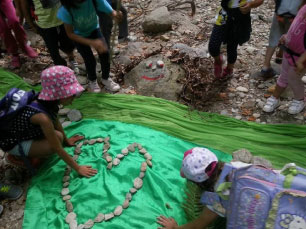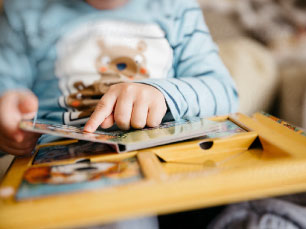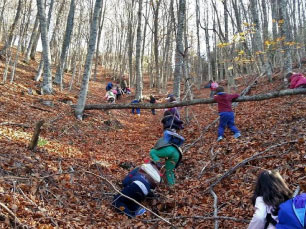Our philosophy
The education of the School of Nature is based on three pillars: Man, Nature and the Values of Deep Education which form the basis of our programs.
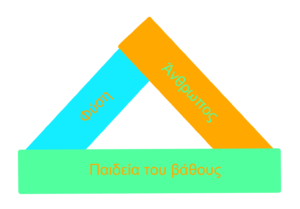
Physical Education:
It is the education in the natural functions of man and the things around us. Through this, the child perceives the non-negotiable laws of nature, understands them, accepts them and respects them. He experiences basic macro-concepts, such as the life cycle, change, evolution, communication, understands interdependence, interaction, learns to cooperate. In nature, he develops physically by running, climbing, performing physical tasks and acquires skills of flexibility, adaptability, problem solving, risk taking, necessary for the 21st century. It becomes autonomous, is trained in self-sufficiency, learns to respect food, acquires moral status.
Authentic Learning:
We use educationally real life situations, where the child is forced to explore, develop critical thinking, discuss, get information from many people and different specialties in order to solve problems and cope with issues related to his daily life, such as autonomy in personal his routines, the cleanliness of the spaces that concern him, the care of animals, his relationships with himself and his environment in general, thus learning to argue, negotiate, work in a group. Authentic learning ensures autonomy, self-confidence and builds citizens with an integrated identity and democratic ethos.
Our innovative programs
Multilingualism
For the first time in our country, the Multilingualism course is taught in a detailed curriculum in kindergarten. Multilingualism is a course that unlocks language codes from around the world, while also serving as a linguistics and intercultural course. In this way children understand how and why a language is structured the way it is, they understand the cultural richness of humanity and it is much easier for them to learn any foreign language.
Philagnosia
Program of systematic contact of the child with the book, which creates readers. It develops very important skills, knowledge and attitudes, related to decoding the written word and understanding its messages. It helps the child to develop strategies for mastering the written word, thus preparing him for the next school level.
Aloha
Brain development program using math with abacus and readiness games that require attention and imagination. Balancedly develops right and left hemispheres, increases mathematical perception, strengthens visual and auditory ability, cultivates self-concentration, imagination, insight, increases photographic memory, develops combinatorial thinking, boosts self-confidence.
L.A.R.P. (Live Action Role Play)
The children, through the roles they play, live the story, the fairy tale, the myth, the everyday life… They become protagonists, take a position, as if they were there, experience emotions, evaluate the situation, choose strategies. They approach the knowledge from within, they appropriate it, so that they connect it to their lives and the society around them and it is a useful knowledge and not just information.
Autonomy - Routines
Systematic training in daily routines, such as being responsible for the cleanliness of their premises, taking care of their personal belongings, dressing and undressing and putting on their own shoes, participating in the preparation and serving of food, having the daily care of animals and vegetable garden. These procedures contribute to becoming autonomous individuals, who will succeed in their daily lives, ensuring self-sufficiency and thereby self-confidence necessary for success in life.
Education in life values
Character education program through concepts and attitudes that refer to timeless and universal life values, which permeate and diffuse throughout the educational program. Through experiential activities, children learn to cooperate, to share, to offer, to respect what exists in their environment, to be authentic as the nature around them is. Through the understanding of self and nature, they build a conscious existence with self-esteem, which realizes that they are part of a whole and that in order to be well, the whole system around them must be in balance.
Excursions
Excursions complement school education, as they form an authentic learning environment where children in nature get to know themselves better, discover their potential by walking long hours in the forest, climbing rocks, skiing in the snow , to sleep on the beach by the sea, to build dreamcatchers, to write down their fears and then burn them by exorcising them, to be responsible as they pack their bags, arrange their rooms, take care of their food, cultivate fantasy through the stories of fairies, elves and mermaids by discovering messages hidden under stones and tree trunks. They converse with nature, embrace the trees and realize that a whole world exists there in nature, which has its own life which we must respect in order to exist in harmony.

